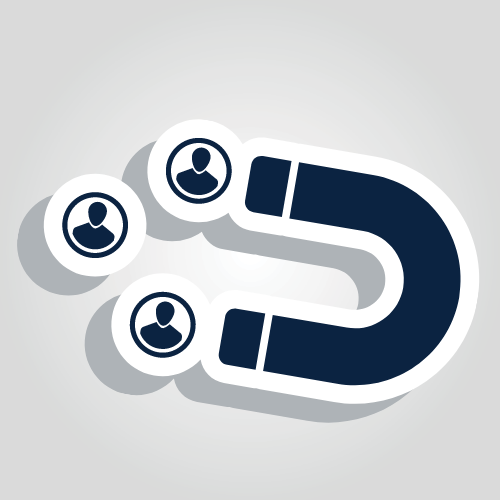Leadership and Organizational Development
Partner with Staff to Build a Resilient Workforce
As we welcome the new year, and the 22nd month of the pandemic, a critical question likely keeps many leaders awake at night: How do we continue to adapt to the ever-changing landscape and strive to thrive in the face of unrelenting challenges? One answer stands out to me: Partner with staff to build workforce resilience.
Our workforce, the most precious organizational resource, has suffered greatly from COVID-19’s impact, which has only added to existing pressures and difficulties that often affect human services professionals. Despite increased efforts to support staff since March 2020, evidence reveals staff morale and satisfaction have suffered. The O.C. Tanner Institute Global Culture Report indicates a decline in their annual core measurements of workplace culture, including a 14% decrease in sense of purpose and a 15% decrease in sense of appreciation. Health care and human service workers have also experienced a sharp increase in burnout, and workforce shortages are impacting delivery of services.
The good news is we are learning how to respond to these alarming trends. Living and working during a global pandemic has taught us to move from pre-pandemic, top-down employee recognition and self-care initiatives to partnerships with staff that promote brain-based interventions, psychological safety, positive workforce culture, and increased connections.
How to Build Workforce Resilience
Advance Understanding of a Brain Aware Perspective and How to Stay Regulated
To be well at work, we need to know about basic brain functioning. Our brain mediates our thoughts, feelings, and behaviors. Dr. Bruce Perry, principal of the Neurosequential Network and senior fellow of The ChildTrauma Academy, notes, “A brain aware perspective helps me when I’m trying to understand people,” (in What Happened to You?: Conversations on Trauma, Resilience, and Healing). With this knowledge, we can prevent and mitigate the impact of toxic stress on our brains and bodies. We can embrace regulation—the basic strategy for calming our lower brain—and integrate it into everyday work. Dr. Perry’s sequence of engagement: regulate, relate, reason (3 R’s) is grounded in brain science and applicable in every human interaction. It readies us for effective interpersonal communication. Achieving the workforce outcomes we strive for, like increased trust, stronger relationships, candid conversations, and more accountability, all depend on practicing brain-based interventions such as the 3 R’s.
Foster Psychological Safety
Popularized by Amy Edmonson in her book, The Fearless Organization: Creating Psychological Safety in the Workplace for Learning, Innovation, and Growth, psychological safety is the belief that the work environment is safe for interpersonal risk taking. It leads to authentic conversations that are critical to equity, diversity, and inclusion (EDI) initiatives. It promotes problem solving, innovation, connection, and growth. This practice is built into the culture over time and requires leaders to respond to staff challenges by modeling authenticity, accountability, and compassion, and by creating space for sharing and listening. Google’s Project Aristotle, a two-year study on what makes effective teams, found that the thing that most predicted success in their company is psychological safety.
Increase Connection
Recent research from the O.C. Tanner Institute notes that 45% of employees say the number of individuals they regularly interact with at work has decreased significantly over the past year, and one in three employees feel disconnected from their supervisor. They also report an organization is 12 times more likely to thrive when employees feel connected. Practices such as having frequent check-ins, supporting peer mentorship, normalizing discussions around mental health and EDI, and finding shared purpose all build meaningful connections, even in our virtual and hybrid settings.
Prioritize Positive Workplace Culture
Resilience at work is highly dependent on a positive culture that reflects the organization’s stated values and beliefs. A resilient organization has a shared agreement with its employees that we collectively bring to life our stated values by realizing them in our behaviors, customs, and practices. Together we build increased equity and connection for all staff. Together we create realistic and healthy boundaries and expectations. And together we learn to ask for help, hold ourselves and others accountable, achieve excellence, and celebrate successes.
Create a 2022 Action Plan
Social Current is committed to partnering with leaders at any level to advance these practices, most of which are not fast and easy, but all of which are doable and highly merit the investment of time and resources. Our experts on trauma-informed, resilient-oriented approaches and leadership excellence can share the latest findings around understanding and responding to stress, distress, and trauma in the workforce.
Learn more about our approach to workforce resilience with the Feb. 3 webinar, Building Workforce Resilience to Thrive During Challenging Times. And stay tuned for opportunities to dig deeper through our Spring 2022 offerings: Workforce Resilience SPARK Exchange and Workforce Resilience Learning Collaborative. An overview of our SPARK Exchanges and sneak peak at our Social Current Hub online portal will be held during a Feb. 8 webinar.
Renew the commitment to your staff in the new year through concrete strategies for increasing emotional regulation, self-compassion, and interpersonal connection, as well as accountability and effective communication. Don’t miss the opportunity to explore the cornerstone concepts for building a resilient workforce that can adapt and thrive in times of change and challenge.
Together, we can strengthen our most valuable resource in 2022!
Upcoming Learning Opportunities
Great Resignation and Human Services: Combating Workforce Shortages in Public and Nonprofit Agencies
Webinar, Jan. 31, 2022, 2-3 p.m. ET
Join this webinar hosted by Social Current and the American Public Human Services Association (APHSA) to hear from public and nonprofit human services leaders about the collective workforce challenges, as well as promising approaches that, through partnerships, build organizational capacity to achieve our shared mission of supporting the well-being of people and communities.
Building Workforce Resilience to Thrive During Challenging Times
Webinar, Feb. 3, 2022, 2-3 p.m. ET
Kick off 2022 by exploring concepts and strategies that are foundational to building a workforce that can stay well and healthy. A positive organizational culture is critical for supporting staff as they partner authentically with community members who often experience complex challenges, systemic inequities, and personal trauma. This webinar will explore how to advance positive workforce goals such as managing conflict, nurturing relationships, embracing equity, and achieving excellence.
About the Change in Mind Institute
Learn the key strategies for infusing brain science into your organization’s culture, programs, and practices through a collaborative experience where participating organizations determine their own paths for creating the transformation best suited to their unique needs. The process of embedding brain science principles will lead to improved outcomes for children and families. In addition, it will further enhance their organizational cultures and leadership ability to work collaboratively with partners to build better service systems and policies.
The Institute is led by Karen Johnson, who brings knowledge of the advancing science around resilience, brain development, adversity, toxic stress, equity, and trauma-informed approaches to the complex challenges we face. This expertise, coupled with her 27 years of experience in child welfare, behavioral health, and community services, enables her to successfully partner with leaders, staff, community members, and participants across numerous settings to promote individual and organizational resilience. Johnson is a licensed clinical social worker certified in Dr. Brené Brown’s Dare to Lead and Daring Way and trained in Dr. Bruce Perry’s Neurosequential Model of Therapeutics.
Learn more and consult with us on creating a transformational plan for your organization.



